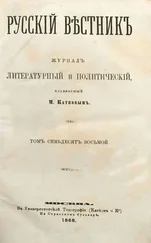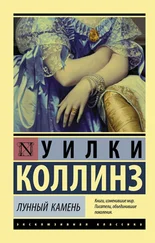| On hearing those dreadful words, my daughter Penelope said she didn't know what prevented her heart from flying straight out of her. |
Дочь моя Пенелопа, дойдя до этого места в рассказе, воскликнула, что она просто не понимает, как при таких страшных словах сердце не выскочило у нее из груди. |
| I thought privately that it might have been her stays. |
Я подумал, грешным делом, что этому мог помешать корсет. |
| All I said, however, was, |
Но вслух пробормотал только одно: |
| "You make my flesh creep." (NOTA BENE: Women like these little compliments.) |
- Ох, меня мороз продирает по коже! Nota bene: женщины любят такие маленькие уступки. |
| Well, when the Indian said, |
Когда индус потребовал: |
| "Hold out your hand," the boy shrunk back, and shook his head, and said he didn't like it. |
"Протяни руку", мальчик отступил на шаг, покачал головой и ответил, что ему не хочется. |
| The Indian, thereupon, asked him (not at all unkindly), whether he would like to be sent back to London, and left where they had found him, sleeping in an empty basket in a market--a hungry, ragged, and forsaken little boy. |
Индус спросил тогда (вовсе без гнева), уж не хочет ли он, чтобы его снова отправили в Лондон и оставили там, где нашли, спящим в пустой корзине на рынке, голодным, оборванным и бесприютным? |
| This, it seems, ended the difficulty. |
Это, кажется, решило вопрос. |
| The little chap unwillingly held out his hand. |
Мальчуган неохотно протянул руку. |
| Upon that, the Indian took a bottle from his bosom, and poured out of it some black stuff, like ink, into the palm of the boy's hand. |
Индус вынул из-за пазухи бутылку и палил из нее что-то черное, похожее на чернила, на ладонь мальчика. |
| The Indian-first touching the boy's head, and making signs over it in the air--then said, |
Потом, дотронувшись до головы мальчика и сделав над нею в воздухе какие-то знаки, сказал: |
| "Look." |
- Гляди. |
| The boy became quite stiff, and stood like a statue, looking into the ink in the hollow of his hand. |
Мальчик замер на месте и стоял как статуя, глядя на чернила, налитые на его ладонь... |
| (So far, it seemed to me to be juggling, accompanied by a foolish waste of ink. |
До сих пор все эти проделки индусов в рассказе Пенелопы казались мне фокусами вместе с пустой тратой чернил. |
| I was beginning to feel sleepy again, when Penelope's next words stirred me up.) |
Я было снова погрузился в дрему, но последующие слова Пенелопы сразу разогнали мой сон. |
| The Indians looked up the road and down the road once more--and then the chief Indian said these words to the boy; |
Индусы опять зорко оглядели дорогу, и главарь их сказал мальчику: |
| "See the English gentleman from foreign parts." |
- Где сейчас англичанин, приехавший из чужих краев? |
| The boy said, |
Мальчик ответил: |
| "I see him." |
- Я его вижу. |
| The Indian said, |
Индус сказал: |
| "Is it on the road to this house, and on no other, that the English gentleman will travel to-day?" |
- По этой или другой дороге приедет англичанин сегодня? |
| The boy said, |
Мальчик ответил: |
| "It is on the road to this house, and on no other, that the English gentleman will travel to-day." |
- По этой дороге, а не по другой, приедет сегодня англичанин. |
| The Indian put a second question--after waiting a little first. He said: |
Помолчав, индус задал новый вопрос: |
| "Has the English gentleman got It about him?" |
- Имеет ли англичанин это при себе? |
| The boy answered--also, after waiting a little first--"Yes." |
Мальчик ответил, также после короткого молчания: - Имеет. |
| The Indian put a third and last question: |
Тогда индус задал четвертый и последний вопрос: |
| "Will the English gentleman come here, as he has promised to come, at the close of day?" |
- Приедет ли англичанин сюда, как обещал, к вечеру? |
| The boy said, |
Мальчик ответил: |
| "I can't tell." |
- Не могу сказать. |
| The Indian asked why. |
Индус спросил, почему. |
| The boy said, |
Мальчик ответил: |
| "I am tired. |
- Я устал. |
| The mist rises in my head, and puzzles me. |
У меня в глазах туман, и он мне мешает. |
| I can see no more to-day." |
Сегодня не могу ничего больше видеть. |
| With that the catechism ended. |
На этом вопросы закончились. |
| The chief Indian said something in his own language to the other two, pointing to the boy, and pointing towards the town, in which (as we afterwards discovered) they were lodged. |
Индус сказал что-то на своем языке другим двум своим спутникам, указывая на мальчика и на город, в котором (как мы узнали после) они остановились. |
| He then, after making more signs on the boy's head, blew on his forehead, and so woke him up with a start. |
Потом, снова сделав знаки над головой мальчика, дунул ему в лоб; тот вздрогнул и очнулся. |
| After that, they all went on their way towards the town, and the girls saw them no more. |
После этого все отправились в город, и девушки уже не видели их более. |
| Most things they say have a moral, if you only look for it. |
Говорят, что почти изо всего можно вывести мораль, если только вы постараетесь отыскать ее. |
| What was the moral of this? |
Какую же мораль можно было вывести из всего этого? |
| The moral was, as I thought: First, that the chief juggler had heard Mr. Franklin's arrival talked of among the servants out-of-doors, and saw his way to making a little money by it. |
Я рассудил, что, во-первых, главный фокусник слышал из разговора прислуги у ворот о приезде мистера Фрэнклина и увидел возможность заработать деньги. |
| Second, that he and his men and boy (with a view to making the said money) meant to hang about till they saw my lady drive home, and then to come back, and foretell Mr. Franklin's arrival by magic. |
Во-вторых, что он, его товарищи и мальчик имели намерение (с целью заработать деньги) пошататься где-нибудь поблизости, покуда миледи не приедет домой, а потом воротиться и предсказать ей приезд мистера Фрэнклина как бы по волшебству. |

![Агата Кристи - На краю [английский и русский параллельные тексты]](/books/32247/agata-kristi-na-krayu-anglijskij-i-russkij-paralle-thumb.webp)
![Агата Кристи - Объявлено убийство [английский и русский параллельные тексты]](/books/33247/agata-kristi-obyavleno-ubijstvo-anglijskij-i-russ-thumb.webp)
![Фрэнсис Фицджеральд - По эту сторону рая [английский и русский параллельные тексты]](/books/34130/frensis-ficdzherald-po-etu-storonu-raya-anglijskij-thumb.webp)
![Уилки Коллинз - Лунный камень [текст оригинала]](/books/43505/uilki-kollinz-lunnyj-kamen-tekst-originala-thumb.webp)

